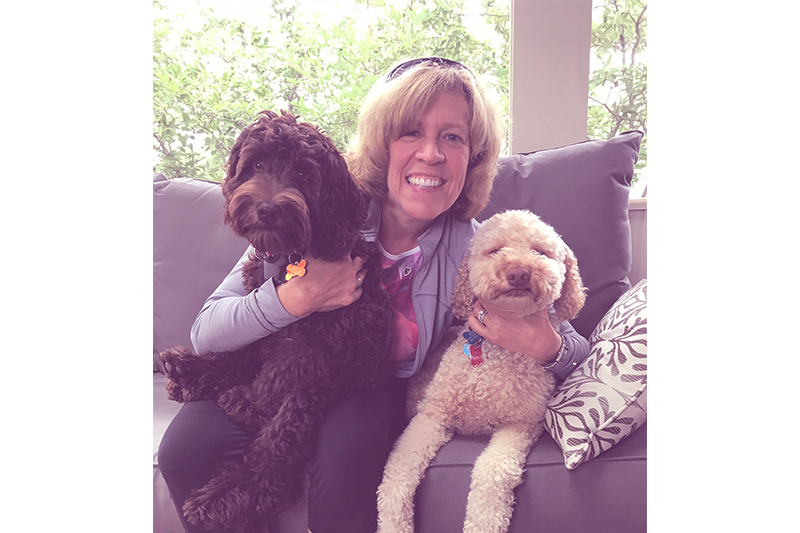
The FemmePharma series, Women We Admire, highlights women who inspire us with extraordinary life lessons. In this edition, we spoke with Andi Drucker to discuss how employers should respect and honor women living and working with a breast cancer diagnosis.
Currently a legal consultant with her own firm, Andi Drucker earned her bachelor’s degree from Cornell University and her JD from the University of Pennsylvania Law School. In 2011, Drucker was diagnosed with breast cancer. She has been in remission for nine years.
How far into your career were you when you were diagnosed?
I was general counsel for a biotech company, and my career was well-established — 28 years. I was actually diagnosed with breast cancer on a Monday and received a new job offer later that week, so there were some difficult decisions to make. The pending job offer was also with another biotech company that was over an hour away from home, so I was a little cautious about accepting that new commitment too quickly. My surgeon was also an amazing cheerleader and encouraged me to take the risk.
Of course, no one knew exactly what the road ahead might look like for me, and I didn’t want to deprive the new employer of the flexibility they might need to fill the very pressing work demands facing a public company with pending FDA approval for new drugs. In the end, I decided that I would accept the new job if I didn’t need chemotherapy and decline if I did.
I was fortunate because the CEO of that company had spent a number of years in oncology for a large pharmaceutical company. Somehow, he persuaded his board of directors to wait several weeks for my treatment plan and permitted me to delay the start date for eight weeks.
According to an article on Living Beyond Breast Cancer’s website, one study found that 66 percent of employed women with breast cancer said that their employers made accommodations to make it easier to perform their jobs. What was your experience when you returned to work after treatment?
I didn’t conceal my news. I shared the diagnosis with everyone at work, not only so they might understand any work delays, but also because I felt at the time, and still believe, that we need to shout our message from rooftops.
My employer at the time was respectful of my privacy and gave me as much leeway as I needed to go to medical appointments, figure out a path forward, and schedule and recover from surgery. The CEO actually warned me not to come back to work too quickly. His mom was a breast cancer survivor so that was tremendously beneficial.
The new employer allowed me to leave work around 3 p.m. for the first several weeks to complete the long commute and make my late-afternoon radiation therapy appointments.
In your experience, how well do employers and co-workers handle a breast cancer diagnosis?
Overall, I had amazing support. Not everyone was able to discuss the issues or handle the matter very well, but I’m quite straightforward and honest, so that helped a lot.
What can employers and co-workers do differently?
It takes time. Sensitivity, understanding, acceptance, and support are key to those facing the disease. Obviously, the stronger and more positive response, the better — at least for me. Some people aren’t comfortable handling difficult news, but I believe it’s a matter of practice and exposure in some cases. I think that the more we get the news and the messages out there, the better. Of course, such progress is dependent upon individual reaction as well as the leadership and tone at the top.
What can employers and co-workers do to accommodate caregivers who, for whatever reason, are unable to take 12 weeks of unpaid leave provided under the Family and Medical Leave Act?
Permit flexible hours, working from home, opportunities to make up time, possible use of sick days or other PTO, borrow future PTO. I think any willingness to work with employees and offer flexibility would be appreciated. Under worst-case scenarios, even time off without pay could be helpful, as long as the job position will be held.
For more from women who have survived breast cancer, read our interview with Dana Donofree, founder of AnaOno.